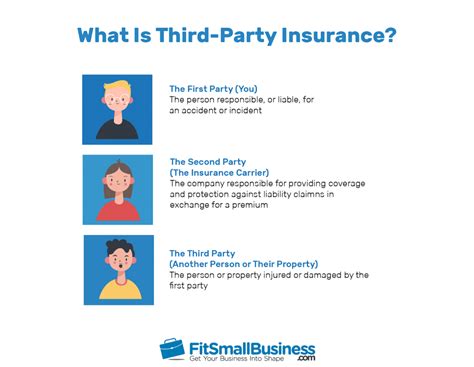Learn about the challenges and benefits of Shariah-compliant insurance, regulations in Qatar, and implementing policies with the Qatar Insurance Company.
Shariah Compliance in Insurance
Contents
Shariah compliance in insurance refers to the adherence of insurance policies and practices to the principles of Islamic law. The insurance industry in Qatar has been undergoing significant changes towards Shariah compliance in recent years, with the Qatar Insurance Company leading the way.
One of the key aspects of Shariah-compliant insurance is the prohibition of Riba, or interest. In conventional insurance, interest is often charged on late payments or financing of premiums. However, in Shariah-compliant insurance, such practices are considered non-compliant. The Qatar Insurance Company has introduced policies that adhere to these principles, thereby offering insurance products that align with Islamic law.
Furthermore, the concept of Gharar, or uncertainty, is also prohibited in Shariah-compliant insurance. This means that insurance policies must be free from ambiguous or unknown elements, ensuring transparency and fairness in dealings between the insurer and the insured. The Qatar Insurance Company has taken steps to ensure that their policies are free from Gharar, providing peace of mind to their customers.
In addition to these principles, the Qatar Insurance Company has implemented Takaful, a cooperative system in which participants contribute to a pooled fund to support each other in times of need. This aligns with the mutual assistance and cooperation emphasized in Islamic teachings. This approach has gained popularity among customers seeking insurance options that are not only compliant with Shariah principles, but also promote community support and solidarity.
| Challenges of Shariah Compliance in Insurance |
|---|
| 1. Adapting conventional insurance practices to align with Shariah principles |
| 2. Educating the market about the benefits and importance of Shariah-compliant insurance |
| 3. Ensuring regulatory compliance with Qatar’s insurance laws and guidelines |
As the demand for Shariah-compliant insurance continues to grow, the Qatar Insurance Company has set an example for other insurance providers in the region. By prioritizing transparency, fairness, and mutual support, the company has established itself as a leader in Shariah-compliant insurance, catering to the needs and values of the Muslim community in Qatar.
Understanding Qatar Insurance Regulations
Qatar insurance regulations play a crucial role in shaping the insurance industry within the country. The regulations are aimed at ensuring that all insurance activities within Qatar comply with the laws and principles set by the regulatory bodies. This is particularly important for companies offering Shariah-compliant insurance, as they must adhere to the strict guidelines outlined in the regulations.
One of the key aspects of the Qatar insurance regulations is the requirement for companies to obtain proper licensing and authorization to operate within the country. This process involves a thorough evaluation of the company’s financial stability, business model, and compliance with Shariah principles. Additionally, companies offering Shariah-compliant insurance must appoint a Shariah advisor to ensure that their products and operations align with Islamic law.
Furthermore, the regulations also outline the specific guidelines for product development and offerings in the Shariah-compliant insurance sector. Companies must ensure that their products are in compliance with Islamic principles, and this involves regular review and approval from the regulatory authorities. This ensures that customers are offered insurance products that are in line with their religious beliefs and values.
Moreover, the Qatar insurance regulations also emphasize the importance of transparency and disclosure in the Shariah-compliant insurance sector. Companies are required to provide clear and comprehensive information to their customers regarding the terms and conditions of their insurance policies, as well as the underlying Shariah principles that govern their operations.
In conclusion, understanding the Qatar insurance regulations is essential for companies operating in the Shariah-compliant insurance sector. Compliance with these regulations not only ensures the legality of their operations, but also fosters trust and confidence among their customers who seek insurance products that are in line with their religious beliefs.
Challenges of Shariah Compliance
Challenges of Shariah Compliance
When it comes to Shariah Compliance in Insurance, there are several challenges that companies must navigate in order to ensure their policies adhere to Islamic law. One of the main challenges is the interpretation and application of Shariah principles to insurance products. Insurance companies must work closely with Shariah scholars to ensure that their products and practices are in line with Islamic law. This requires a deep understanding of both insurance regulations and Shariah principles.
Another challenge is the need for transparency and ethical conduct. In order to be Shariah-compliant, insurance companies must ensure that their practices are transparent and ethical. This can be difficult, as insurance is a complex industry with many moving parts. Companies must be diligent in their efforts to ensure that their practices are in line with Islamic law.
Additionally, there is the challenge of creating innovative and competitive products while maintaining Shariah compliance. In a competitive market, insurance companies must constantly innovate and adapt in order to attract and retain customers. This can be challenging when working within the confines of Shariah principles, which may limit certain types of products or investments.
Finally, there is the challenge of regulatory compliance. In Understanding Qatar Insurance Regulations, it is clear that insurance companies must comply with strict regulatory requirements. This is compounded by the additional requirements of Shariah compliance, which adds another layer of complexity to an already heavily regulated industry.
| Challenges of Shariah Compliance |
|---|
| Interpreting and Applying Shariah Principles |
| Transparency and Ethical Conduct |
| Innovative and Competitive Products |
| Regulatory Compliance |
Implementing Shariah-Compliant Policies
Implementing Shariah-Compliant Policies
Implementing Shariah-compliant policies in the insurance industry is essential for companies operating in Islamic countries such as Qatar. This involves ensuring that all insurance products and services adhere to Shariah law principles, which prohibit riba (interest), gharar (uncertainty), and maysir (gambling). It also requires the establishment of an independent Shariah board to oversee compliance and provide guidance on Islamic principles.
One of the key steps in implementing Shariah-compliant policies is the development of Takaful products, which are Islamic insurance products that adhere to Shariah law principles. Takaful involves mutual cooperation and responsibility among participants, and it is based on the principle of donation rather than premiums, ensuring that Riba is avoided. By offering Takaful products, insurance companies can provide Islamic insurance solutions that align with Shariah law and meet the needs of Muslim customers.
Another important aspect of implementing Shariah-compliant policies is the establishment of Shariah compliance guidelines and frameworks. This involves conducting regular Shariah audits to ensure that all insurance operations and practices are in line with Shariah principles. Companies must also train their employees on Islamic insurance concepts and the importance of Shariah-compliance to ensure that all staff members are aware of and adhere to Islamic principles in their work.
Furthermore, insurance companies must work closely with Shariah scholars and advisors to ensure that their products and services are Shariah-compliant. This involves seeking guidance and approval from Shariah boards on the development and offerings of Takaful products, as well as addressing any compliance issues that may arise. By collaborating with Shariah experts, insurance companies can ensure that their operations are in line with Shariah law and meet the ethical standards set forth in Islamic finance.
In conclusion, implementing Shariah-compliant policies in the insurance industry is crucial for companies operating in Islamic countries such as Qatar. By developing Takaful products, establishing Shariah compliance frameworks, and collaborating with Shariah experts, insurance companies can ensure that their offerings adhere to Shariah law and meet the ethical standards of Islamic finance.
Benefits of Shariah-Compliant Insurance
Shariah-compliant insurance, also known as Takaful, offers a range of benefits for both individuals and businesses. Takaful operates on the principle of mutual assistance and risk-sharing, in adherence to Islamic laws. One of the key benefits of Shariah-compliant insurance is the ethical framework it operates within, providing peace of mind for policyholders who value ethical considerations in their financial dealings.
Additionally, Takaful emphasizes the concept of community and solidarity, as it involves contributions from all policyholders to a common fund, which is then used to support those in need. This collective approach not only fosters a sense of social responsibility and solidarity but also ensures that policyholders are protected against unforeseen risks and losses.
Another advantage of Shariah-compliant insurance is the potential for spiritual rewards, as policyholders are viewed as participants in a cooperative system that aligns with their religious beliefs. This can be especially appealing for individuals who prioritize religious observance and seek insurance solutions that are in harmony with their faith.
Moreover, Shariah-compliant insurance promotes greater transparency and accountability, as it operates on the basis of clearly defined mutual agreements and ethical guidelines. This can help build trust and confidence among policyholders, as they are assured that their contributions are being managed in accordance with Islamic principles.
Overall, Shariah-compliant insurance offers a range of benefits, including ethical considerations, community support, spiritual rewards, and transparency, making it a compelling choice for those seeking insurance solutions that align with their values and beliefs.












